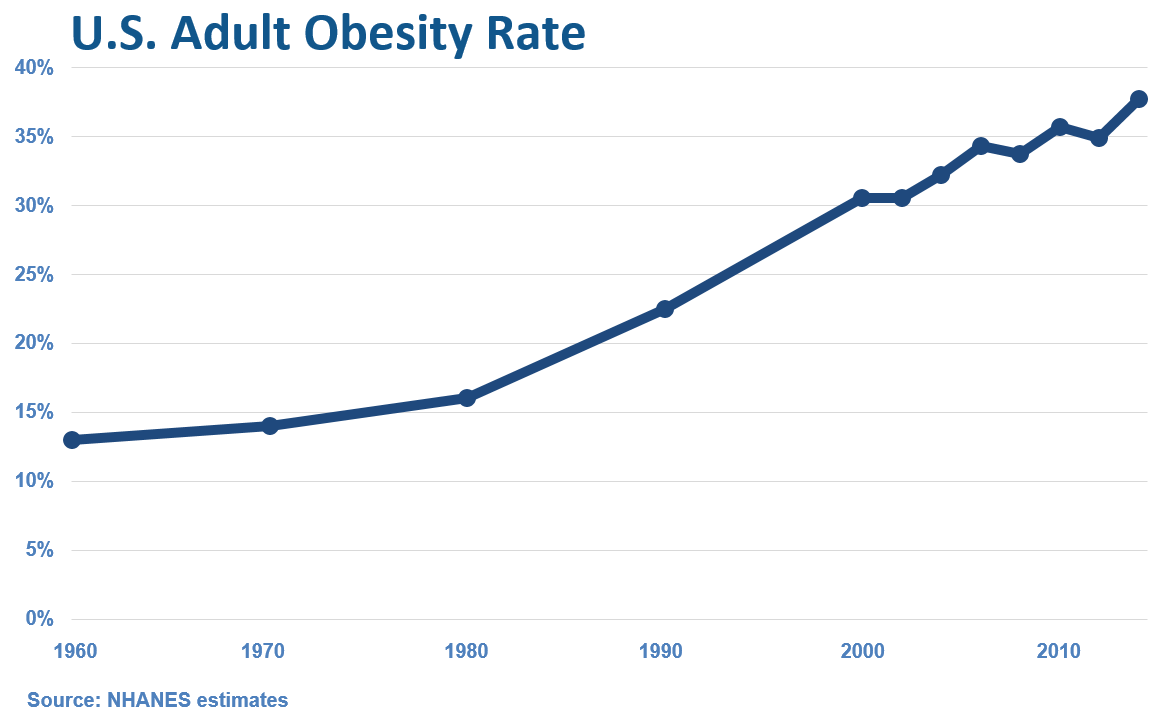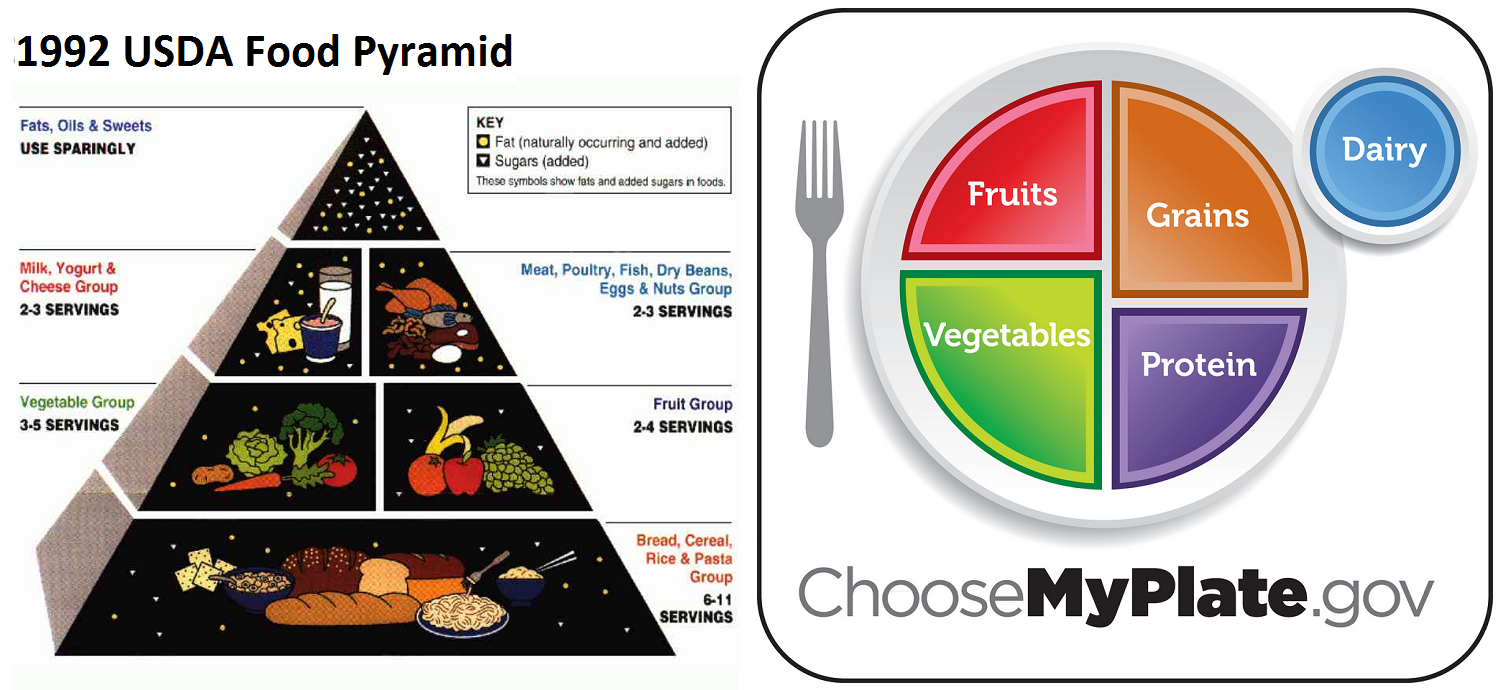
Food Policy Does Not Equal Obesity Policy
 “As policymakers have denied the intricate nature of obesity, strategies to address obesity have largely relied upon food policy.”
“As policymakers have denied the intricate nature of obesity, strategies to address obesity have largely relied upon food policy.”
Writing in the international Jounal of Obesity, Fatima Cody Stanford and Ted Kyle point out that food policy, by itself, cannot be relied upon to reduce the considerable impact of obesity on the health of Americans. They go on to call for a more comprehensive approach:
Although food policy initiatives may have a role in obesity policy, they should be part of a larger policy in which stakeholders from academia, government, industry, technology, law, medicine, public health, and education collaborate on ways to reduce obesity rates and consequent health impact.
 A key milestone in U.S. food policy came in 1977 when a Senate committee proposed dietary goals for the American people. After intense lobbying, debate, and controversy, the first ever publication of Dietary Guidelines for Americans was issued jointly in 1980 by the U.S. Department of Agriculture and the Department of Health, Education and Welfare. Coincidentally, the prevalence of obesity began to take off at about the same time.
A key milestone in U.S. food policy came in 1977 when a Senate committee proposed dietary goals for the American people. After intense lobbying, debate, and controversy, the first ever publication of Dietary Guidelines for Americans was issued jointly in 1980 by the U.S. Department of Agriculture and the Department of Health, Education and Welfare. Coincidentally, the prevalence of obesity began to take off at about the same time.
So it’s hard to make the case that food policy, by itself, has done much to reduce the impact of obesity in America. Maybe it’s time to try a different approach.
Click here to read the editorial in IJO, here for a rather complete history of dietary advice in America, and here for a history of Dietary Guidelines for Americans.
Food Police, public domain image from the Boston Public Library via flickr
Subscribe by email to follow the accumulating evidence and observations that shape our view of health, obesity, and policy.
December 9, 2015

December 09, 2015 at 5:08 pm, Allen Browne said:
Food policies are made by policy makers and influenced by the goals and knowledge base of the policy makers.